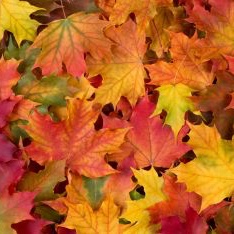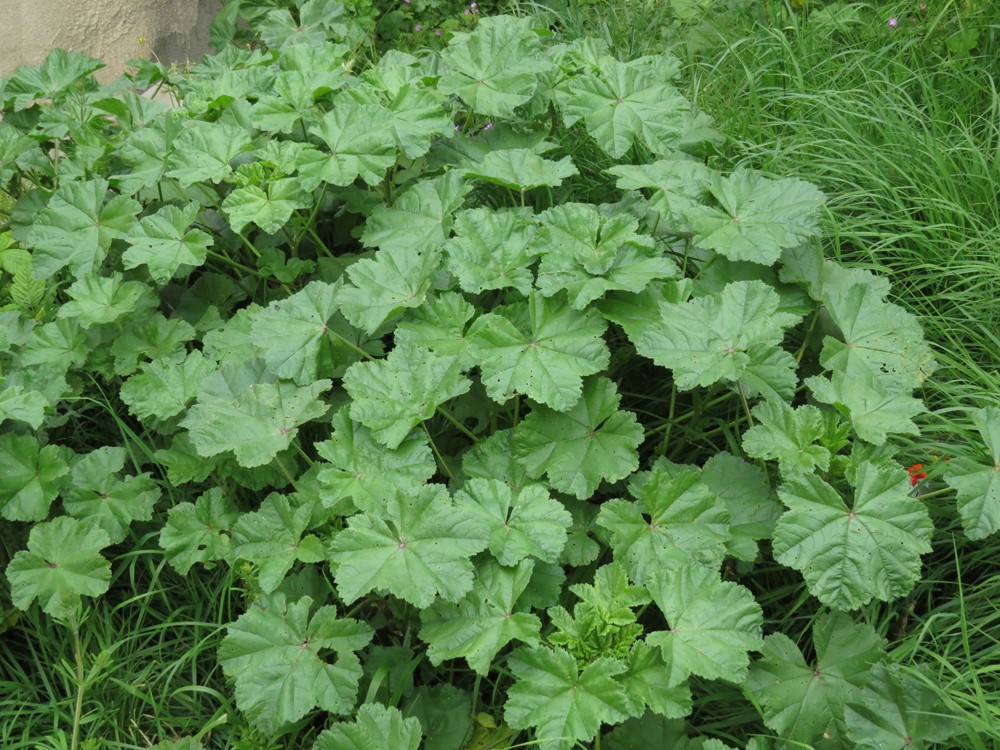There are many factors that will contribute to having a healthy tree in the Boulder area. At Organo-Lawn, we see a lot of trees that have been planted out of their natural habitat or planted in dead soils. This will include most maples, ashes, and oaks; even aspens are not at home at this elevation. These trees are often planted for their beautiful fall color. To ensure that your trees have that vivid fall color and not muted dull tones, you will want to make sure your trees are getting all of the nutrients they need.
Trees in an urban setting often have a lifespan of about 10-15 years because of stressful conditions. These stressors include pollution, compacted soils, and not enough room for root growth. Below are the steps to follow to make sure your trees are in good health and help prevent insect pressure and environmental issues like chlorosis (shown below).
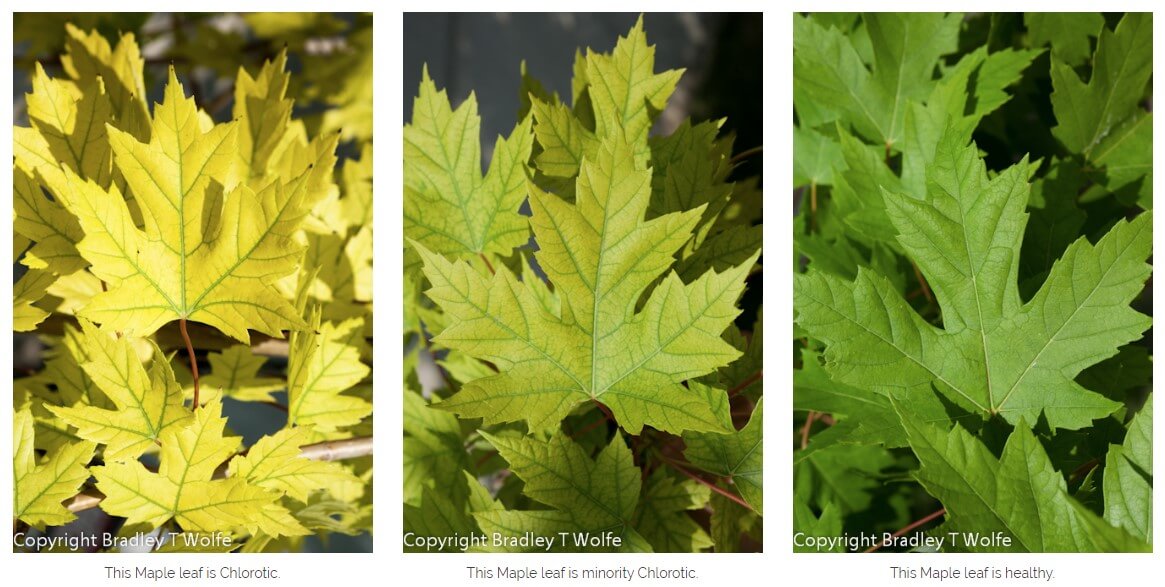
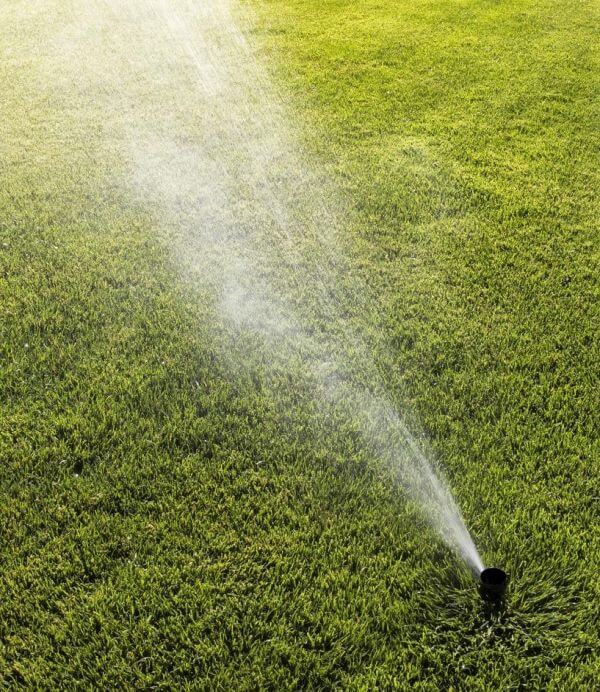

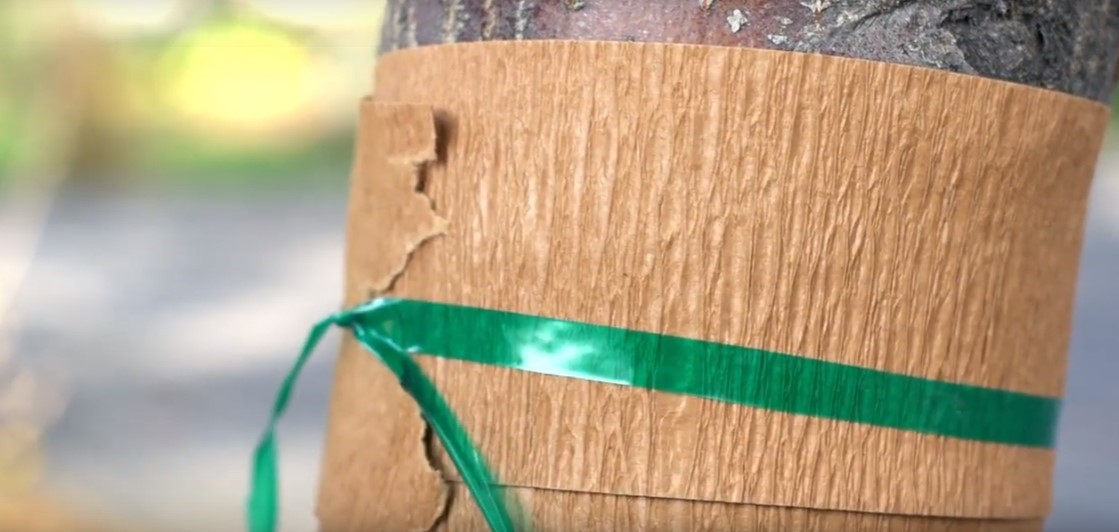

Proper Watering for Trees and Lawn
Most homeowners don’t realize how much watering the lawn has to do with their trees. But in fact, following proper watering practices for the lawn will benefit the trees greatly. Proper watering means watering deeply and infrequently. You can check out the 1-2-3-2-1 lawn watering technique to find out what a proper watering schedule will look like for your lawn, and therefore your trees. Your trees need to be watered regularly to make sure they are getting enough water throughout the year. This will include watering the trees over the winter if there isn’t enough natural precipitation. If we haven’t had much rain or snow, you will want to water the trees about every 3-4 weeks. 10 gallons per diameter of the trunk of the tree is a good rule of thumb.
Organic Fertilization for Trees and Lawn
The idea behind fertilizing the lawn is to create a healthy environment for the trees to grow in. Organic fertilization will feed the microbes in the soil, which in turn provide nutrients to the flora. We have an organic fertilizer specifically developed for trees. Our deep root tree fertilization has the beneficial fungus called Mycorrhiza; this fungus will help increase the robustness of the trees roots as well as help prevent the tree from absorbing harmful pollutants. Our fertilizer also contains iron, which will help in the prevention of chlorosis. Deep root tree fertilization is suggested at least once a year, but twice a year for a stressed or non-native trees. We provide this service in the spring and fall.
Winter Tree Wrapping
Tree wrapping is an important service for young trees or trees that do not have a furrowed bark. The exception would be trees with white bark such as aspens and birches. Tree wrapping prevents the tree from developing sun scald. This is the most important for trees that are south facing and receive a lot of sun. Sun scald is caused from repeated heating from the sun and freezing during the winter. This causes the bark to expand and contract, which causes the bark to split.


